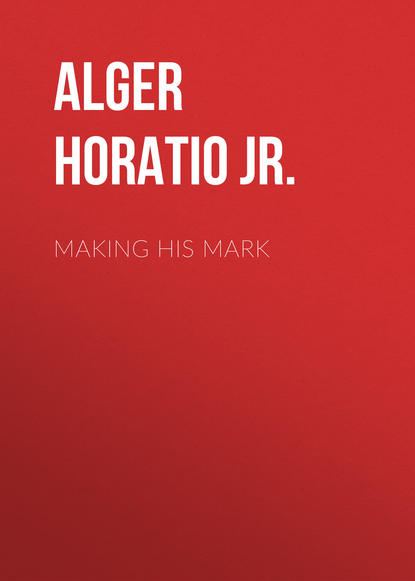По всем вопросам обращайтесь на: info@litportal.ru
(©) 2003-2024.
✖
Making His Mark
Настройки чтения
Размер шрифта
Высота строк
Поля
The woman coughed. She evidently had a severe cold. Abel had opened the window, and a strong east wind entered. It would have been uncomfortable even to a person perfectly well, but to one having a cough it was very trying.
"Would you mind putting down the window?" she asked, timidly. "I have a terrible cold."
"I prefer it open," said Abel, rudely.
The passenger behind was cognizant of all that passed.
"Madam," he said, "will you exchange seats with me?"
She rose and took the rear seat while the gentleman seated himself beside Abel. He was a stout man, and filled more than half the seat. Abel looked disgusted.
"Now, young man, close that window!" said the stout man, in a tone of command.
Abel obeyed, but it was with great unwillingness. He did not dare to do otherwise.
"It is very close," he grumbled. "I like a little air."
"There is no other open window on this side the car. If the others can stand it, you can."
"I wish people would mind their own business," grumbled Abel, peevishly.
"Look here, young man, if you give me any more of your impudence I will give you a thrashing!" said the stout man, sternly.
He looked quite capable of carrying out his threat, and Abel, thoroughly cowed, relapsed into silence.
At length they reached Portville, and Abel, picking up his valise, stepped out of the car.
He looked about him on the platform, thinking he might see his mother, but she was not quite sure as to the train by which Abel would come, and had not come to meet him.
Abel looked about and espied a boy rather younger than himself. It was John Holman.
"Boy," he said, "can you tell me where Mrs. Lane lives?"
"The widow Lane?"
"Yes, she is a widow."
"About half a mile away. You go up this road and take two turns."
"Oh, bother, why didn't she come to meet me? How can I find the way?"
"Come along with me. I am going that way."
"All right! Won't you take my valise, too? That's a good fellow. I will pay you five cents."
"I will take it to oblige you. I won't charge you anything."
"You'd better take the nickel. You look like a poor boy."
"I am not in any special need of five cents," said John, not pleased with the patronizing tone of his new companion.
Abel was pleased, however, with the idea of not having to pay for the service.
"Do you know Mrs. Lane?" asked Abel.
"Yes. Gerald Lane is my intimate friend."
"Gerald? Oh, yes! that is Mr. Lane's son. What sort of a boy is he?"
"He is a tip-top boy. Everybody likes him."
"Humph! isn't he rather independent?"
"Why shouldn't he be? His family was one of the most prominent in the village."
"Ah, just so!" said Abel, complacently, for he felt that this made his mother's position the stronger.
"I suppose you wonder who I am," said Abel, after a pause.
"I suppose you are a friend of the family."
"I should say I was. I am Mrs. Lane's son."
This surprised John, for Gerald had neglected to tell him the information he had only just obtained himself.
"I never heard Gerald speak of you," he said, half incredulous.
"Gerald knew nothing about me."
"How is that?"
"Mother and Mr. Lane thought it best not to tell him."
"But, of course, he will know now."
"Certainly. I am going to live here."
John made no comments, but he thought it rather a strange state of things. However, they had by this time reached the Lane residence, and John, indicating it, gave the valise to Abel.
From the window Mrs. Lane saw the arrival of her son and opened the door for him. "Oh, my darling boy!" she exclaimed, throwing her arms about his neck. "So you have come home at last!"
"Don't choke me, mother," said Abel, impatiently. "It doesn't look well to hug a fellow in public."
"I can't help it, Abel. I am so delighted to see you. Come right in and sit down. Are you tired?"
"Rather. I say, mother, you are pretty well fixed here."
"Yes, Abel; you like the house, don't you?"











